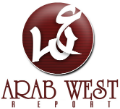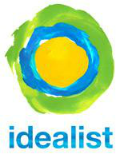Education for Peace
You are here
A great necessity
Egyptian media regularly reports inter-communal tensions in Egypt and across the Middle East: expressions of anger, clashes and too often people are killed.
Misunderstandings are created by false reporting (see Conduct for Stability and Mutual Understanding), but also ingrained perceptions that need to be challenged. For example, Arab outcries against Western policies and culture may at times by justified, but beyond its content its formulation is often too emotional and therefore it does not resonate with a Western audience. So too, the framing of Islamic culture and the Arab World as a whole is skewed in a negative fashion by a substantial number of opinion makers in the West, both secular and non-secular in orientation.
Feelings of inherent superiority also rally an inability to understand the other. A substantial number of Muslims believe Islam to be superior to all other religions. Some Western Christians too advocate an extreme teaching. Others, on the other hand, try and reduce the influence of religious beliefs as much as possible and approach the matter in a similar manner to religious radicals.
Polemics are widespread and are not limited by state boundaries. Moreover, polemics bolster extremist thought causing many people to fall back on their own religious or cultural community, hindering the acceptance of the other, as well as a rejection of pluralism and peaceful relations between members of different religious and cultural communities.
Communal tensions in Egypt stems from a variety of causes; socio-economic issues, culture, legal boundaries, inequality, etc. Many tensions that arise are sparked by issues unrelated to religion, however when situations escalate and religious arguments are brought into the equation they take on a sectarian nature that increases the religious divide. The parties involved usually focus on superficial partisan reporting, seeking support for their position (strongly image and culture related) and often believing that attacking and minimizing the concerns of the other helps their cause. However, polemics have never led to a sustainable solution and both within and outside of media reporting, polemics deepen existing tensions and tend to make them worse, at times even resulting in violent conflicts.
An instrument for building peace
-
Make different views from the Arab world available to a wider public.
-
Help Christians, and other non-Muslims, to understand Islamic culture; and also help them to understand Islam, how Muslims live and how they present Islam.
-
Help Muslims to understand non-Muslims, how these non-Muslims live and present their faith.
-
Provide a free and open forum where discussions can take place between members of different religions and cultures, with particular attention being paid to Arab participants who are often given insufficient space and do not readily act on opportunities to express their views in a written format.
By ‘Understanding’ we mean:
-
Understanding the culture, concerns and fears of the other, and encouraging good neighborly relations.
-
Challenging stereotypes.
-
Making background information and analysis available to citizens of Egypt and other countries.
This background information is characterized by:
-
Promoting transparency and integrity in reporting by media, government, private institutions and private people which is a prerequisite for a transition to a democratic society.
-
Presenting the facts instead of emotive arguments.
-
Disentangling socio-economic problems from religious ones.
-
Explaining that dialogue does not mean putting forward just one's own beliefs but improving communication.
-
Discussing sensitive subjects such as human rights, conversion, religiously motivated violence and other issues, in ways that create understanding, and thus uniting people without the need to always agree.
-
Showing similarities in cultures and beliefs and not only differences.
-
Realizing that we find biases toward other cultures in every culture, including in one's own society.
-
Providing a media critique with the purpose of encouraging the media to inform, and not create division.
-
Showing the harmful effects of incorrect information which creates anger, conflicts and counters the values of peace, understanding and pluralism.
- Provide a unique collection of material and information not available elsewhere which includes both reviews from Arabic media as well as own reporting.
- Make our material available for use by students in Middle Eastern Studies, Political Science, Journalism, International Relations, and Religious Studies.
- Encourage students to write papers, theses and PhDs on subjects we cover which include our material. Reports are placed in our database and can be used by later students to build on earlier work.
- Assist institutions to use AWR documentation in their curricula.
- Encourage institutions they know to provide lectures that aim at limiting polemics and encouraging understanding.
- Provide background information for reports and articles in various media.
- Promote the realization that many crucial problems that spark conflict suffer acutely from the non-sustainability of memory which enhances the risk of manipulation by interest groups.
- Stockpiling Arab media reviews, writing our own reports and networking with other data repositories helps to create a vital contribution to sustaining accurate memory.
- Link reporting about current events to background documentation that helps authors to present events and incidents in their proper context.
- Stimulate a culture of pluralism. Introduce interns to experienced multinational staff with an excellent network.
- Provide Arab-West Report in Arabic and English for Western and Arabic audiences with the same message of opposing stereotypes and other forms of misinformation.
- For peace-building we need to build up a mutual respect and understanding of people from different cultures and beliefs which in turn requires knowledge of different cultures.
Development requirements
Peace builders
-
Build long term relations that are built on mutual understanding.
-
Listen but never accept statements at face value and respond with exploratory questions.
- Always take the context of each individual situation into account.
Tools and Strategies
Stereotypes add to frustrations and may even provoke anger in those who feel misunderstood and misjudged. The Center for Arab-West Understanding aims to stem these stereotypes.
We encourage reviews and translations of Arabic authors representing many different opinions on subjects found in the Arab and Islamic world; opinions we may sympathize with and opinions that we may not agree with. But they nevertheless help us to understand the wide range of thoughts that exist in the Arab and Islamic world. We want to allow the authors to speak for themselves through English language reviews of the articles written for the Arabic media. Without reformulating their opinion
To this, we add our own investigative and analytic journalism. We teach students to develop a critical attitude toward media and help them to analyze material. Some of our students have continued with peace education after having first obtained a thorough knowledge and understanding of the interaction between Western and Arab cultures.
The Arab-West Report collection is the only one of its kind that is primarily based on Arabic media reporting about Muslim-Christian relations and relations between the Islamic and the non-Islamic worlds. All articles in the collection have been reviewed in English (systematic reviews in Arabic are being developed).
All data collected is placed in a database that is used to promote peace building and oppose violence and conflict. Efforts are being made to make this archive more widely available by making it meet western library standards and developing its search functions.



